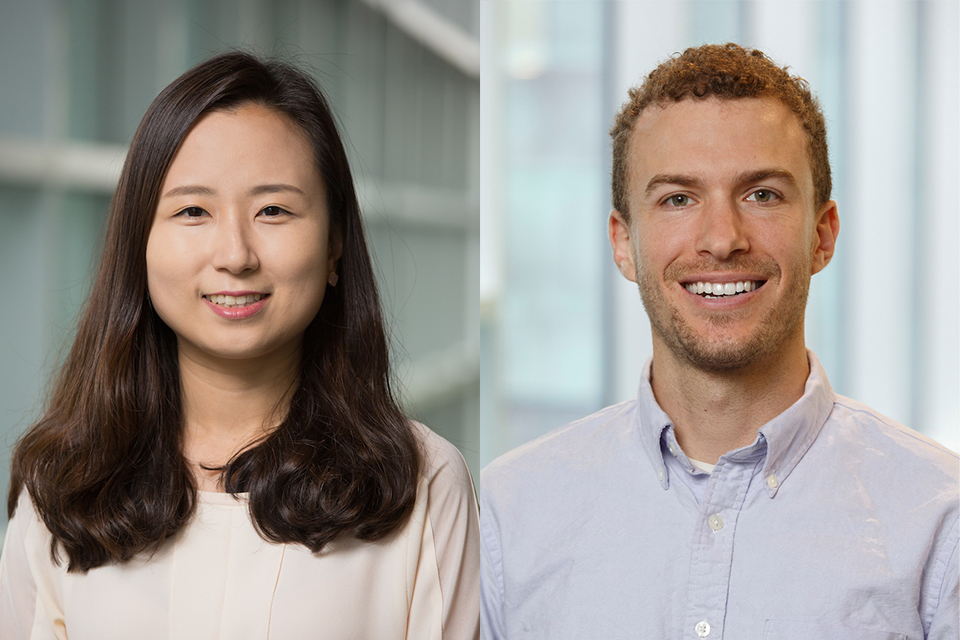Two Faculty Members in the Sciences Receive 2022 Dean’s Mentoring Award

Friday, April 8
Simon Goodacre | Graduate School of Arts and Sciences
Thomas Fai, Assistant Professor of Mathematics, and Grace Han, Assistant Professor of Chemistry were presented with the Dean’s Mentoring Award at the faculty meeting on February 8, 2022. The $2,500 award is given to a faculty member who demonstrates “outstanding ability as a mentor” in the supervision of students enrolled in the Graduate School of Arts and Sciences (GSAS).
GSAS students nominate faculty members for the award, which is given every year in April. "We had an amazing pool of 25 faculty, all nominated by students and colleagues,” said GSAS Dean Wendy Cadge of this year’s nominees. “We decided to recognize two faculty this year in recognition of their continued excellent work with students.”
Nominating students write that Fai is, “encouraging, resourceful, patient, and transparent,” and they praise his willingness to “find opportunities for us to expand our network and gain professional skills beyond research.” He is also lauded for his clear instruction, commitment to inclusivity, availability outside of class, and his patience, with one nominator writing that, “He has never shamed me for making mistakes or failing.”
Fai regards the award to be a “genuine honor,” going on to say that “Working and collaborating with a talented and hardworking group of students is my favorite part of being a professor.” He has modeled his approach to advising students on some of his own mentors. “I aim for my students to feel comfortable talking with me about their struggles, since this is part of the normal learning process, and to have a continual and open two-way conversation that helps them achieve their goals.”
Nominators write that Han is “super kind and helpful” as a principle investigator, and they all emphasize her ability to help students think critically as they approach difficult scientific problems. One writes, “Last semester has been extremely hard for me in terms of research. I was stuck by the project for over a month but couldn't make a single move... She first helped me calm down and gave me several solutions to think of. She encouraged me to give it a try without hesitation. Finally I figured out the problem with her help.”
Han’s approach to mentoring is to empower students with positive views on research. “When I was a trainee, I often felt skeptical and worried about the novelty and impact of my own research, since I was trained to think rigorously about science,” she says. “The best mentorship I received was the reassurance about the science I do and my capability as a scientist.” Like Fai, she points to her own advisors as models—particularly Professors Timothy Swager and Jeffrey Grossman at MIT, who supervised her doctoral and postdoctoral training. “I hope to be a mentor who can lift up my students and provide opportunities that will help them evolve into an independent researcher after overcoming difficulties and gaining confidence that they can always find an answer to any difficult problems.”






